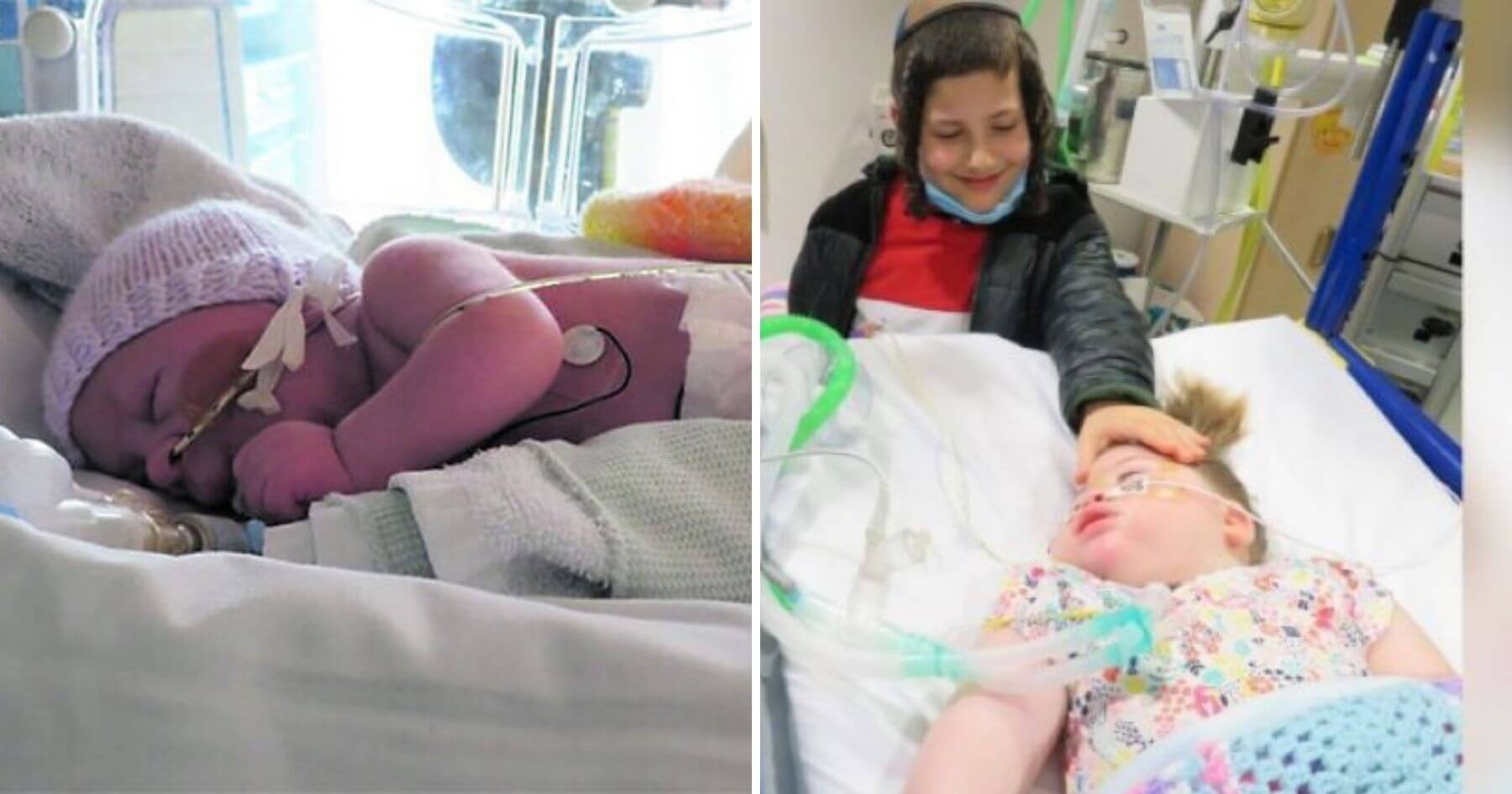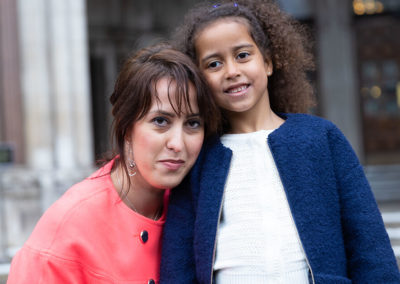The parents of a two-year-old girl set to be taken off life-support are calling on the government to intervene to save her life.
Alta Fixsler, now aged two and a half, was born prematurely when her mother went into labour at 34 weeks, and suffered brain damage as a result of oxygen starvation.
Doctors initially thought she would only survive a few hours.
Alta’s parents Avraham and Chaya Fixsler, had sought to reach an agreement with the Manchester University NHS Foundation Trust in the wake of a legal battle to permit her to travel to Israel or the US for treatment, but were unsuccessful. Alta was granted a US visa so she could be transferred to the US with her father – who is a citizen – to receive care in the country.
The Israeli government made a formal request for her to be allowed to travel, and the country’s Chief Rabbi and its Attorney General declared the ending of Alta’s life illegal under Jewish law.
Mr Justice MacDonald explained that: “There is no requirement for the court to evaluate the reasonableness of the parents’ views before it embarks upon deciding what, objectively, is in the child’s best interests.
He also claimed that she “has no quality of life” and “the burdens of Alta’s life outweigh any benefits”.
The trust also decided that Alta’s treatment should be withdrawn either in a local hospice or paediatric care rather than at home.
The trust has claimed it was concerned about trolley accessibility and that the family’s offer to move house to accomodate easier access would cause delays.
“She does not need to die because she is not like me and not like you”
In a statement her parents said: “We ask Boris Johnson and Sajid Javid to intervene and request the Trust reconsider their position and allow Alta to come home to her family”.
Mr Fixsler told reporters: “There is no reason to kill Alta, she does not need to die because she is not like me and not like you, she should be allowed to live her life like any other child”.
“We know she is different but we love her no less than we love our son, who is a happy, healthy little boy”.
“No hospital and no doctor should be able to take the decision of what is in the best interests of a child. This is something for the father and the mother to judge, yet this is being denied to us”.
The family have argued that ending her life-sustaining treatment would go against their Orthodox Jewish beliefs.
Manchester-based Rabbi Jonathan Guttentag, has argued that the trust’s decision amounted to “child euthanasia against the wishes of the parents”.
He added that it had “no place in any decent humane society, and stands at odds with the liberal nature of today’s Britain”.
“It breaches the sacred bond between parents and child and is an assault on the basic moral fabric of the family” he went on.
Former MP Ivan Lewis also waded in, calling on the Government to intervene and urged the trust to reconsider its approach.
“It is not too late to show some compassion for the grieving parents and respect for their religious beliefs”, he said.
The case has attracted widespread media coverage and political attention including statements of support from US Senate Majority Leader Chuck Schumer and Senator Ted Cruz. Former Israeli President Reuven Rivlin personally appealed to the Prince of Wales, expressing “it would be a tragedy if these parents’ wishes could not be accommodated in a way that respects both the law and their religious beliefs”.
The UK’s Supreme Court refused last month to overturn an earlier ruling allowing her transfer into palliative care.
The European Court of Human Rights also rejected a further appeal by her family earlier this month.
A spokesperson for Right To Life UK, Catherine Robinson, said: “This is a medically complex and highly emotional case, but as journalist Melanie McDonagh explained in a recent article: ‘… the hospital trusts are going beyond their remit and the judges beyond the terms of the Children Act 1989 under which they are obliged to act in the best interests of the child”.
“Indeed, whatever the opinion of the Manchester University Hospital’s medics, if medics in the US and Israel are willing to offer Alta help, it is not fair for British doctors to insist she remains in the UK.”.
Image credits: The Fixsler family











